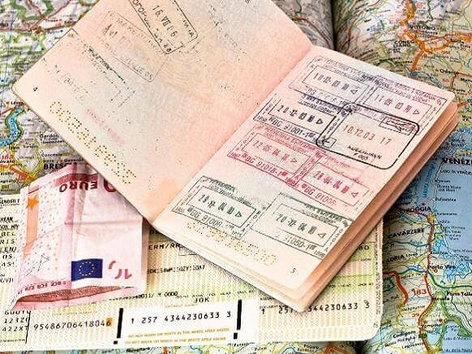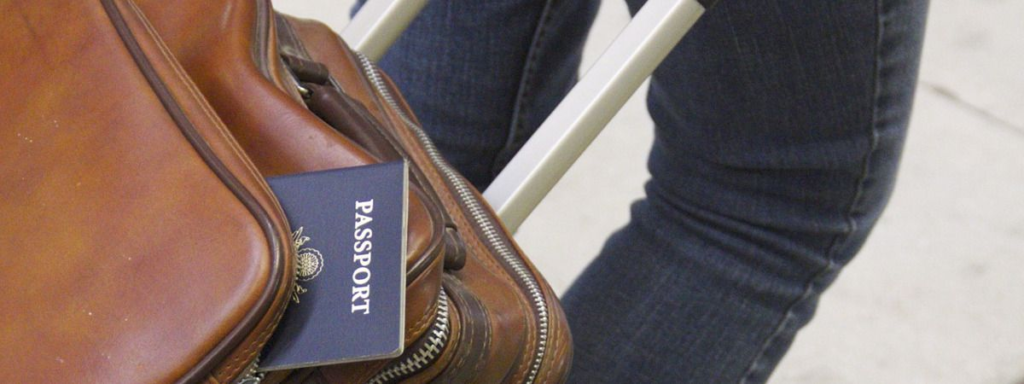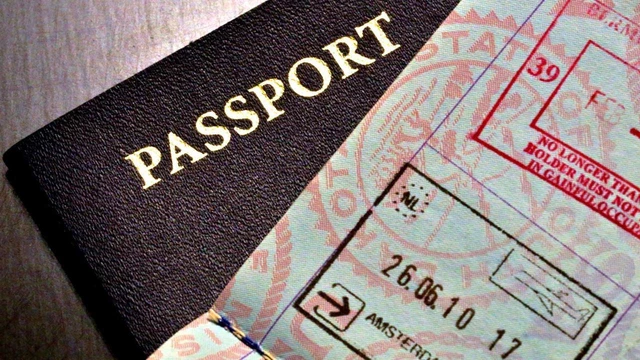Overstaying Visa In Ethiopia
The single most common cause of overstaying a visa anywhere in the world is the lack of knowledge about local law. And the most disturbing truth is that people who do not know much come to this place highly unprepared and they don’t plan accordingly and hence they get stuck due to their own ignorance.
Whether you are a business man or a tourist, overstaying visa has always been a question in your mind. It is one of the biggest fears anyone could have that whether he or she will get caught by immigration officers or not before the valid entry to their country of residence expires. Sooner or later, everyone who deals with travelling has either experienced overstaying or knows someone who has done this in the past. It is important to know what overstaying is and how it affects travellers to another country.
If you are an international, who’s done a tourist visa run to Addis Ababa, chances are you have had some issues with your 30 day Ethiopian visa.
Right here on Touriangle you can rest easy to obtain all the relevant information you need on Ethiopian immigration website, tourist visa extension Ethiopia, Ethiopian E visa for Eritreans, Ethiopia e visa processing time, and so much more. You don’t want to miss this!

Overstaying Visa In Ethiopia
According to the new law (Law number 4/2010), foreign visitors to Ethiopia must register and stay in a hotel with a valid visa. Visitors who enter the country without accomodation and fail to register with their embassy or consulate are not allowed re-entry into the country. When entering Ethiopia, both citizens of foreign countries and Ethiopian passport holders planning to stay for more than 14 days should apply for a tourist visa from an Ethiopian Embassy or Consulate overseas.
There is an abundance of things to see and do in Ethiopia and many visitors want to stay for longer than their visa allows. However, there are consequences of overstaying beyond the validity period of a visa.
Evisa Ethiopia Overstay
Visitors who overstay in Ethiopia are subject to fines and legal penalties. It may also be impossible to reenter the country in the future.
However, visitors can apply for a visa extension legally. It is possible to extend a tourist visa by going, in person, to the Head Office of The Main Department for Immigration and Nationality Affairs, in Addis Ababa.
It is also possible to apply for a Ethiopian eVisa renewal, but visitors need to leave the country to be able to apply. The application form only takes a matter of minutes to fill out and applications are processed very quickly.
This article will explain, in more depth, the consequences of overstaying a visa in Ethiopia and how visitors can avoid them by extending their visas.
Consequences of Overstaying a Visa in Ethiopia
For overstaying a visa for up to 15 days, each traveler has to pay a fine of roughly USD 50 and an additional fine of USD 5 per day. For example, if someone overstayed by 2 days they would have to pay USD 60.
Visitors who have overstayed can’t leave the country until they have paid the fine. Those who overstay for a long duration also face the risk of facing criminal charges and being deported. They may also be denied entry into the country in the future.
How to Extend an Ethiopia Visa in Addis Ababa
Travelers can extend their visas by up to 30 days by going, in person, to the office of Main Department for Immigration and Nationality Affairs in Addis Ababa (Arada sub-city, Arat Kilo).
Applicants should arrive at the office as early as possible as the process of getting an Ethiopia visa extension can take a few hours. It is normally possible to get the visa extension on the day.
It is essential to bring the required documentation: a valid passport and the current Ethiopia tourist visa. If you have an expired visa it is still possible to get an extension though it takes longer and you have to pay a fine in addition to the visa extension fee.
How to Renew an Expired Ethiopia eVisa
Applying for an Ethiopia eVisa extension is quick and straightforward. However, to be able to apply it’s necessary to leave the country to apply. Travelers can go to a neighbouring country, obtain an Ethiopia eVisa, and then reenter the country.
The application form for the Ethiopia eVisa renewal is exactly the same as the original application. Applicants just need to enter a range of basic information including their name, address, date of birth, passport details, and travel plans. There are also some questions related to the applicant’s backgrounds regarding health and security.
To be able to apply for an eVisa renewal it’s necessary to have a valid passport issued by one of the eligible countries and to pay a fee using a credit or debit card.
Applications are normally processed within 24 hours but on rare occasions it can take up to 3 days. To avoid complications and delays, applicants should ensure that all the sections of the form are completed accurately.
Reentering Ethiopia with the eVisa
After visa applications have been processed successfully, approved eVisas are sent to the email address provided on the application form. Travelers need to print a copy of the eVisa to present at the Ethiopian border, along with their passport, to gain entry into the country.
It’s essential that the copy of the eVisa is clear and legible. Visitors should keep a copy of the eVisa with them at all times during their stay.
Ethiopia Visa On Arrival Suspension
The Government of Ethiopia has announced the suspension of visas on arrival for non-resident foreigners at all points of entry into the country, over security concerns and the current political situation in the country.
The new temporary visa restriction measure came into effect on 29th September 2022.
The Nigerian Ministry of Foreign Affairs on Thursday made the announcement while advising Nigerians bearing standard passports intending to travel to Ethiopia to obtain appropriate entry visas at the Ethiopian Embassy or an electronic visa (e-visa) through the country’s Immigration and Citizenship Service (ICS) portal at www.evisa.gov.et.
“The suspension applies to nationals of all countries bearing Standard Passports, who seek entry into Ethiopia and not specifically targeted at Nigerians, as reported in some quarters,” the ministry clarified.
According to the ministry, the Ethiopian authorities have explained that the measure is aimed at better border control of the movement of persons into Ethiopia in view of the ongoing armed conflict in the Northern part of the country.
The measure is said to be temporary, pending improvement in the security situation in the country and not a replacement of Ethiopia’s open visa policy.
Additionally, those transiting through Bole International Airport, Addis Ababa, Ethiopia to other destinations or intend to briefly stop over would require a valid entry visa to enable them access hotel facilities in the city or else would be obligated to remain in the airport pending their connecting flight.
The ministry also advised Nigerians against tarnishing the image of the country by engaging in actions that violate visa rules in Ethiopia.
Ethiopia E Visa Problem
Crisis in Ethiopia
For two years, the government of Ethiopia and forces in its northern Tigray region have been at loggerheads, throwing the country into political and economic instability
Eritrean soldiers are also fighting in Tigray for the Ethiopian government. All sides have been accused of atrocities.
Several factors are said to be contributing to the seemingly unending crisis.
According to the UN Refugees agency (UNHCR), Ethiopia is the third largest refugee-hosting country in Africa, home to over 924,000 refugees and asylum seekers—mainly from South Sudan, Somalia and Eritrea.
The ongoing conflict killed thousands and internally displaced millions of Ethiopians. An estimated 59,000 people fled Ethiopia to find refuge in eastern Sudan.
Millions of Ethiopians are still in desperate need of humanitarian aid and protection. An estimated 9 million people across Ethiopia’s conflict-stricken regions of Tigray, Afar and Amhara lack access to adequate food.
In Tigray, nearly 40 per cent of the population is suffering from an extreme lack of food. In addition to severe food insecurity, gender-based violence has increased significantly but women and children lack access to proper healthcare, social welfare and justice services, the UN has said.
As the conflict continues in the Tigray region, international NGOs and aid groups face difficulties in delivering critical humanitarian aid and vital services. A shortage of fuel, supplies and cash has forced several aid groups to reduce or cancel distributions of food, water and medicine.
However, there are new hopes that the crisis may soon come to an end as both sides have agreed to an African Union-mediated dialogue in South Africa this weekend, Voice of Africa reported.
The talks would come after a series of airstrikes in Tigray, including one on Tuesday that killed more than 50 people when it hit a school sheltering war-displaced people, aid workers said.
According to the AU Commission, the talks will be led by AU special envoy Olusegun Obasanjo, who will be supported by former South African Deputy President Phumzile Mlambo-Ngcuka and former Kenyan President Uhuru Kenyatta.
The Tigray authorities, according to VOA, have criticised Mr Obasanjo’s role as a mediator, on grounds of a perceived close relationship with the Ethiopian prime minister.
They have insisted that international officials participate in cease-fire discussions as “observers” and “guarantors.”

